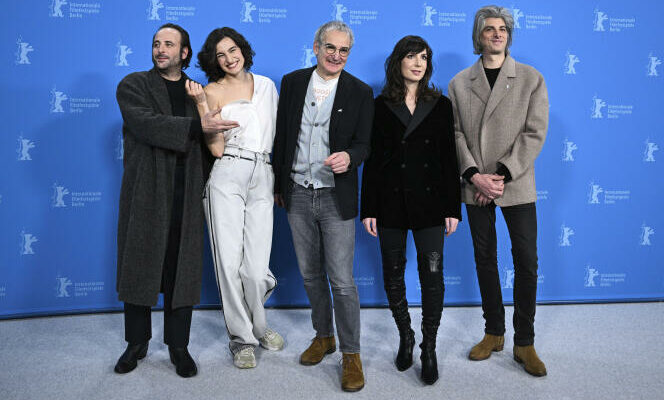A great perplexity grips us at the end of the screening of Olivier Assayas’ latest feature film, Out of time, in the running for the Golden Bear at the Berlinale, the 74th edition of which takes place until February 25. How did the former film critic and director Cold water (1994),Irma Vep (1996), from Personal Shopper (2016), etc., can he create such a conventional work today? We could certainly add “touching”, because this autofiction really is, in what it says about the dismay of the filmmaker born in 1955: Assayas lays himself bare – and often not to his advantage – although behind the mask of the interpretation of Vincent Macaigne – here named Etienne.
Assayas revisits the period of his confinement in his family home, in Normandy, in spring 2020, in the presence of his brother, the music critic Michka Assayas, here called Paul and played with a certain brilliance by Micha Lescot, behind his sunglasses. Etienne and Paul came with their new companions, respectively Morgane (Nine d’Urso) and Carole (Nora Hamzawi). The pandemic gives them the opportunity to find themselves in this enchanting place of their childhood, a house filled with books, works of art, a garden extending into the neighbors’ park. Who are now dead, just like the parents of Paul and Etienne – a father a writer, a mother a designer who fled Hungary. From the first images, a great melancholy envelops the film, while Olivier Assayas’ voice-over, a little precious and chastened, goes back in time.
Health zeal
Brought together by the pandemic, the two brothers have difficulty living together. Out of films, Etienne is in a dark mood and reveals himself to be a stickler for barrier gestures, which allows Macaigne to excel in the role of the first-class pain in the ass. Paul can’t stand this health zeal, especially since he has just separated and dreams of a little serenity.
Etienne and Paul still share a precious asset, their young years lulled by pop and rock, evenings with Jacno and Elli Medeiros, etc. These evocations of delirious moments offer the most luminous moments of the film, the two actors having a great time recounting the anecdotes. Female characters, on the other hand, are confined to the accessories section. Probably because they are younger, do not have the same musical references, and spend a lot of time listening to their lovers.
If Morgane prepares a documentary, and talks about literature while hitting a few tennis balls with Etienne, we know almost nothing about the wise Carole, except that she does yoga – the comedian, actress and director Nora Hamzawi hides his verve in this film. The only moment of discussion between the two women will allow them to talk… about their men, in a field, televisual reverse shot. No doubt, they are by the fire of love.
You have 5% of this article left to read. The rest is reserved for subscribers.
